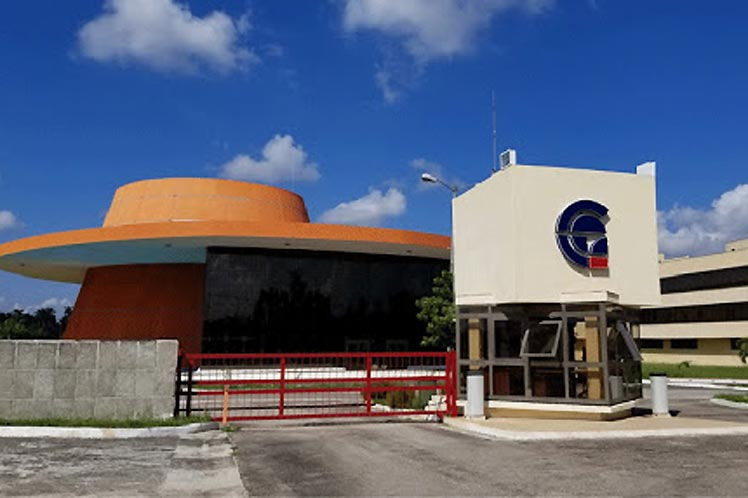
Center for Advanced Studies (CEA). PL Photo.
Havana, February 11 (RHC)-- The development and production in Cuba of a reagent module for PCR tests' performance will allow the country greater technological independence in the fight against the Covid-19 pandemic.
Created at the Center for Advanced Studies (CEA), the nanotechnological product uses magnetic particles to extract RNA (ribonucleic acid) from the SARS Cov-2 coronavirus, which causes the disease and determine whether or not the samples are positive.
Every day, CEA manufactures 80 of these modules, with each of which 500 PCR tests can be performed. This contributes to the country's aspiration to soon reach the goal of achieving 20,000 of these diagnostic tests a day.
According to Brayan Mondéjar, head of the Nanoformulations Department of that scientific institution, the reagent production allows the island to save considerable foreign currency by replacing imports from China.
It also makes it possible to obtain greater precision when performing PCRs and diagnostic safety by eliminating the risk of false negatives, the scientist pointed out.
Until December 2020, Cuba imported each of the substances used in PCR tests separately and at high prices.
With this reagent, the seven compounds are integrated into a single module, among them the magnetic nanoparticles that allow opening the virus and extracting the RNA for its study, he explained.
Since its foundation less than two years ago, the Center for Advanced Studies has developed 26 projects as part of the National Nanoscience and Nanotechnology Program for application in key sectors of the country's socio-economic life, and collaborates with other activities such as light industry and electronics.
Its research covers bio-nanomedicine, agriculture, water treatment, the transformation of the energy matrix, the environment, and construction, said Angelina Díaz, CEA's general director.

